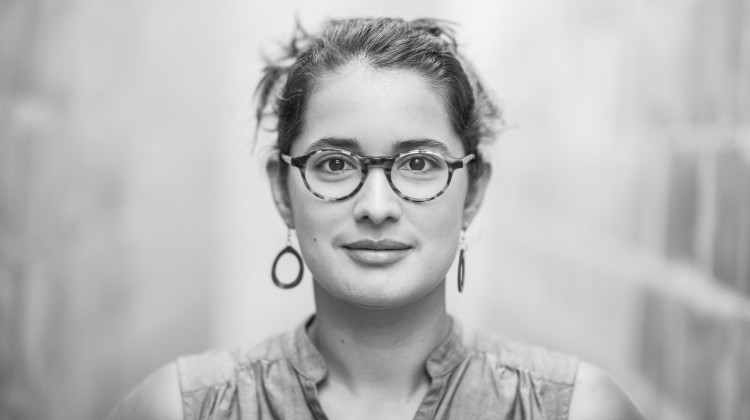Joanna Rodriguez-Noyola

Understanding how the built environment affects human behavior and designing with that in mind is crucial. MIT's interdisciplinary approach made me more well-rounded...
What is your career story? How did you get where you are today?
I have always been interested in the arts; growing up I wanted to go to art school or pursue fashion design. I loved the idea of thinking of something and then bringing it to life. However, my parents pushed me into architecture instead of a two-year art program. I got into Cornell but felt a special connection with MIT after touring the campus. During my time at MIT, only 6-8 people declared Course 4 (Architecture) in my year. I participated in many MISTI programs and spent my summers after junior and senior year in Spain, gaining valuable experience and exploring the country.
I graduated in 2009 during the recession, which meant there were no jobs available. I stayed in Spain for almost a year and got employed by a firm there because they liked my work. I also did workshops in Venice. I later went to Harvard GSD, but became jaded with architecture after my experience there. I briefly transitioned to production design but didn’t enjoy the film industry and its politics.
I then found a job at MEIS Architects, working on sports and entertainment architecture. This was an exciting field, but the larger international projects I worked on did not get built and I wanted more experience in smaller local work that I could see from start to finish.
During the pandemic, I had kids and needed more time than a full-time job allowed. I now work at Studio PCH as a Senior Project Architect on residential and hospitality projects, where I have a lot of seniority and work on an hourly basis with a flexible schedule.
What skills do you use on a day-to-day basis?
As an architect, I am constantly amazed by the range of knowledge required. On a daily basis, I use skills like problem-solving through design, 3D thinking, and understanding how to translate 2D ideas into 3D concepts. I also utilize software like Revit and Rhino, although I wish I had learned more about construction detailing.
What were the biggest skills/mindsets/approaches you took away from your architecture education?
From my architecture education, I learned the importance of resolving problems through design and 3D thinking. At MIT, the education was quite old-school, which I liked, especially the base of hand-drafting. Translating 2D thoughts into 3D in your head is extremely valuable. I also learned a lot through observation, site visits, and immersing myself in different places. Understanding how the built environment affects human behavior and designing with that in mind is crucial. MIT's interdisciplinary approach made me more well-rounded, as I took science restricted electives in genetics and bioengineering, which positively impacted my design abilities.
What do you wish you had learned in your architecture education?
I wish I had learned more about professional practice, such as client relationships and project management. It's also very important to learn programs like Revit and how to use software properly. At MIT, TAs taught us basic digital drafting, but it wasn’t very in-depth. Other schools have students design an entire project and detail it enough to be ready for construction, mimicking real client environments. Learning from someone in the work field rather than a TA or professor would also have been beneficial.
Knowing what you know now, would you do undergrad/grad differently?
No, I loved MIT. Undergraduate years are a weird interstitial space where you stop being a kid and start being an adult. I grew so much as a person and took advantage of all the opportunities I could. I traveled to Africa, Turkey, and Spain with the help of MIT, and learned a lot from those experiences. If I had gone to Cornell, I might have had a better architecture education, but at MIT, I got a well-rounded education. I also highly recommend taking a gap year to work and confirm your commitment to the field prior to investing in a graduate education.
What advice do you have for students starting out in design?
Do internships! Work in a real firm and tell them you don’t want to be organizing their material library; you want to be part of a project team. It's essential to learn how to get things built in the real world.


